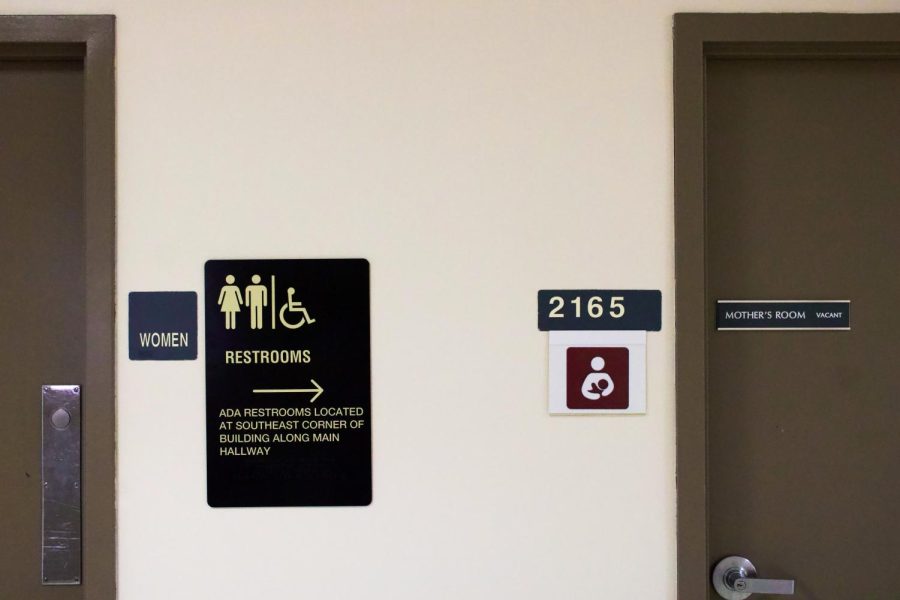On Jan. 31, Utah Gov. Spencer Cox signed H.B. 257 into law, affecting transgender individuals’ access to public spaces. The law prohibits transgender individuals from using bathrooms, dressing rooms and locker rooms that do not correspond to their sex assigned at birth.
Nationwide Controversy
Utah is now one of 11 states to sign such a bill into law. However, a new federal regulation set to take effect in August states that Title IX protects against discrimination based on sexual orientation and gender identity. This federal regulation, released by the Department of Education in April, is expected to bar blanket statement bills like H.B. 257.
Utah has since joined a multi-jurisdictional lawsuit in hopes of overturning the DOE’s decision. Cox, in last week’s monthly news conference, claimed that Title IX was only ever about protecting women.
“It’s very important to protect our transgender students. We want to make sure that everyone feels safe and protected,” Cox said. “But … we [also] have to protect women, and that’s what Title IX has historically been about.”
Enforcement Issues
Despite claims of protection, the bill has come under controversy from the public, legal experts and the State Auditor’s Office. According to H.B. 257, the law will be enforced by the state auditor with an accompanying online complaint form.
Utah State Auditor John Dougall made his disapproval of the bill known in a series of posts and statements released in May. On X, formerly known as Twitter, Dougall has released several videos satirizing his role as the self-described “State Bathroom Monitor.” His statements have also highlighted public response to the bill and overall issues with enforcing it.
In his first statement released on May 7, Dougall addressed the role of the State Auditor and the creation of the online complaint form.
“First, the Office only investigates alleged violations of the Statute by government entities … we will not investigate the actions of any private individuals, nor will we investigate or determine anyone’s sex or gender,” Dougall emphasized. “Second, the Office created the complaint form to comply with a statutory mandate – a role we did not request.”
The enforcement of the law is something University of Utah law professor Terry Kogan also finds legally problematic. He believes it may open the door for even larger violations of privacy as it allows people to take photos of individuals in bathrooms suspected of violating the law.
“Enforcement is virtually impossible, and highly problematic in terms of discrimination against gender,” Kogan said. “The idea of anyone taking pictures in a restroom is highly problematic. If you notice when you walk into the gender designated changing rooms at the Student Life Center, there’s a big sign on the bulletin board that says ‘use of cell phones in this locker room is absolutely prohibited.'”
Political Backlash
In another statement released on May 14, Dougall described the mass amounts of “frivolous” complaints that the office has received on the online complaint form. The statement highlights the ineffectiveness of the hotline and included a link to examples of the false complaints.
“The Office then received over 10,000 frivolous complaints (and has not yet identified a single legitimate complaint),” Dougall said in his statement. “The Office also experienced spammers attempting to otherwise overwhelm the HB 257-related online complaint form.”
Rep. Kera Birkeland was the primary sponsor of H.B. 257. In response to Dougall’s criticism, Birkeland released a string of posts attacking Dougall and reiterated the bill will be effective and help women.
“It’s not surprising that activists are taking the time to send false reports,” Birkeland said on X. “But that isn’t a distraction from the importance of the legislation and the protection it provides women across Utah.”
“I look forward to working with our next state auditor, because I know that he will take the role of protecting women seriously,” she said in another post.
However, Kogan said this law will play no part in protecting women but may play a part in exacerbating the issue.
“So, it is highly problematic to determine that sex, for purposes of using public restrooms, [is] based on birth anatomy,” Kogan said. “And the question is, is this protecting privacy?”




